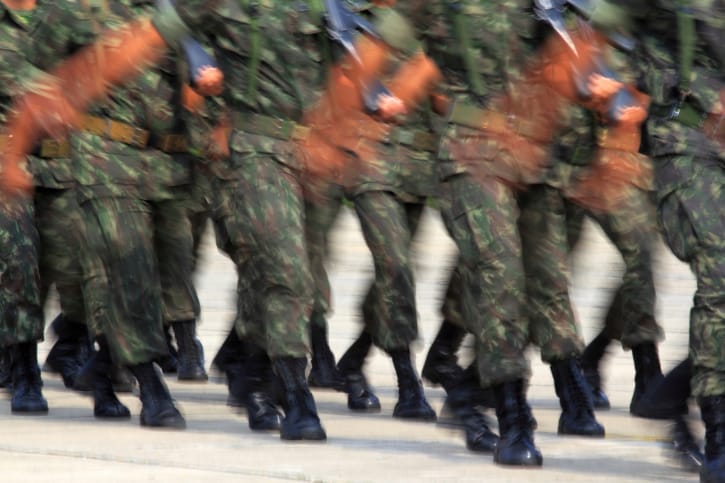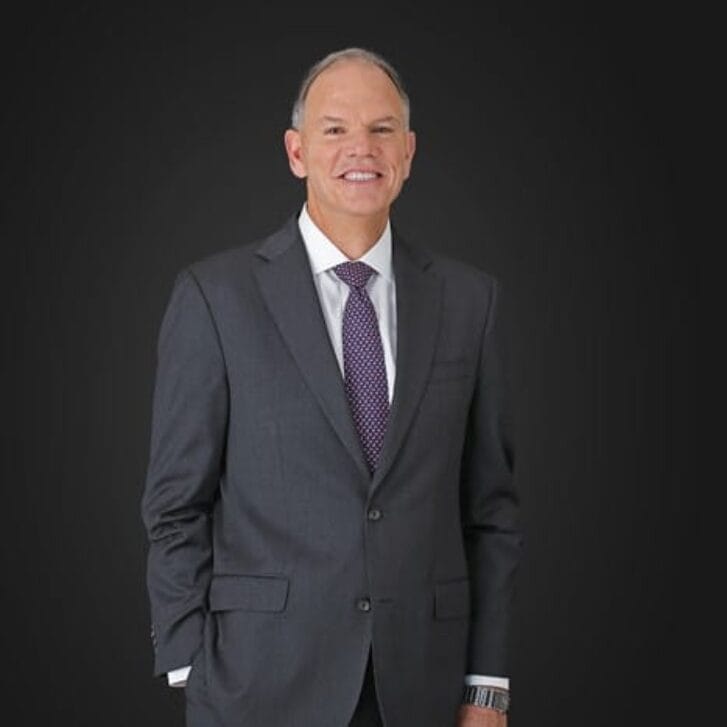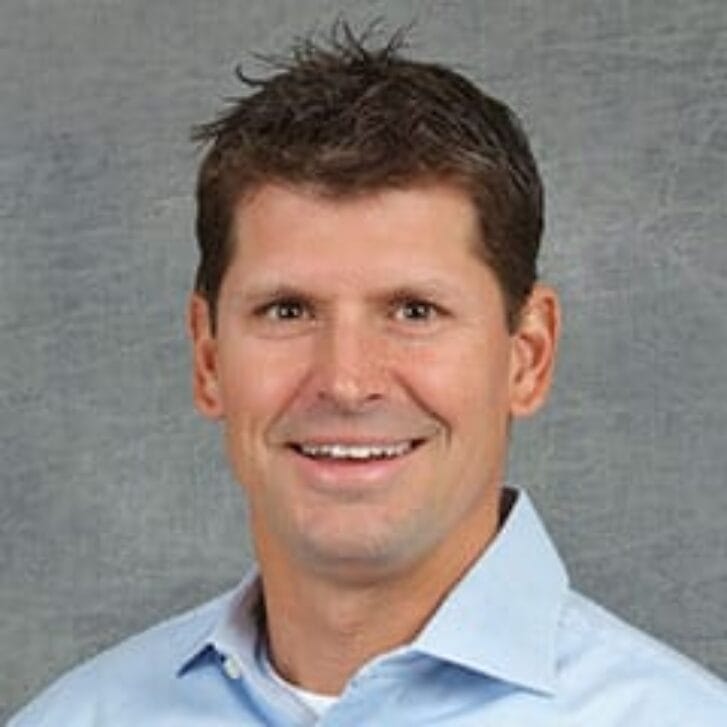For the many military veterans who will join Wharton’s MBA Class of 2014, the School offers a chance to learn the “hard skills” necessary to succeed in business. The rigorous quantitative skills taught at Wharton prepare students to excel in business, while the world-renowned Wharton brand marks them as cutting-edge business minds.
Navy veteran and Pete Notz, WG’07, chose Wharton because of its reputation for excellence in quantitative skills and the credibility the degree would give him. Notz, a principal at Santa Monica, CA-based investment firm Ocean Avenue Capital Partners, recalls that he looked forward to “getting my hands dirty” in the language of business.
Roger Walther, WG’61, who has been chairman and CEO of property-management firm Tusker Corp. since 1997, chose Wharton for practical, quantitative courses to “bring me up to speed,” after his coursework at the Coast Guard Academy.
For Robert Sweeney, W’89, WG’97, now a managing director at Goldman Sachs, coming back to Wharton was about redefining himself. Sweeney says that, after his time as an undergraduate at the School, he chose to return in order to “rebrand myself” after serving for six years in the Navy.
According to Aaron Perrine, a second-year MBA student and former Army Ranger, these alumni aren’t alone. As co-president of the Wharton Veterans Club, Perrine regularly provides advice to veterans seeking to gain admission to the School. Perrine says that many prospective students are interested in Wharton for the same reasons as he was himself.
“I had very interesting experiences in the military, I had, I thought, a compelling set of experiences to offer the private sector, but it is absolutely the case that bringing that together with the Wharton MBA makes that much more marketable,” Perrine says.
Wharton offers more than just the hard skills. The School’s emphasis on leadership builds upon the training these veterans received during their military service.
Leadership Training for Leaders
Leadership is “embedded in the fabric” of the military, according to Michael Langman, WG’98, an Army veteran and managing director at Merrill Advisory Group/The McLean Group. From dawn to dusk, the military requires service members to both lead and follow, often in some of the most dangerous circumstances.
Even to the most experienced veterans, however, Wharton’s leadership training offers important lessons. For instance, Wharton taught Perrine how to lead individuals who aren’t the quintessential military type.
“I think there is still a real stretch experience for vets coming to Wharton in leading peers who just aren’t like us, who have very different cultural and educational backgrounds and very different sets of goals,” Perrine says. “And I think that’s a hugely important part of the transition to the private sector.”
In addition, Wharton leadership training emphasizes a different approach to analyzing leadership. Samuel Allen, WG’06, executive director and co-founder of Burlingame, CA-based photo-preservation service ScanCafe, notes that he was able to introspectively evaluate his leadership style during his coursework at Wharton, which he did not have the opportunity to do as a Marine.
“Running a company, there’s a lot of P&L [profit and loss] responsibility, … but at the end of the day, it’s about leading people and creating a structured environment where people can excel,” Allen says. He credits his time at Wharton with introducing him to concepts and analyses that can help him achieve this.
Wharton prepares students to lead global businesses during management courses taught by world-renowned faculty members like Mike Useem, the William and Jacalyn Egan Professor of Management. During the Leadership Lectures Series, iconic individuals across industry, sport and culture share insights and lessons. And Wharton Leadership Ventures challenge students to test their teambuilding and people skills in rough, far-flung locales around the globe. Wharton even borrows a page from the military’s playbook, taking a group of students to the Marines’ base at Quantico as an annual Leadership Venture.
In addition to understanding styles of leadership, part of being a good leader is being prepared. “Semper Paratus”—always prepared—may be the motto of the U.S. Coast Guard, but this sentiment should be held by leaders in other areas of the military, as well as in business.
David Horn, C’63, WG’68, P’05, president of American Capital Group of Los Angeles, CA, compares intelligence-gathering prior to a military mission to market research before a corporate product launch.
But thorough preparation doesn’t only include market research. It includes ensuring you have a team in place that can handle the mission.
“I’ve always said you should try to surround yourself with people who are smarter and work harder than you do,” Allen says.
Business after Basic
Many of Wharton’s veterans are helping to ensure that fellow veterans and their children are successful—by offering time, advice and guidance, as well as financial assistance to make a Wharton education possible.
Sweeney recently endowed a scholarship for undergraduate students who are the children of members of the military. Sweeney attended Wharton as an undergraduate on a Navy ROTC scholarship and saw firsthand how difficult it can be for some military families to afford to send their children to college.
“I wanted to help,” Sweeney says.
The University has taken additional steps to make the School affordable to veterans. As a participant in the Yellow Ribbon Program, a federal program that allows higher-education institutions to partner with Veterans Affairs to fund tuition for eligible veterans, the Wharton School has committed up to $10,000 in tuition assistance per student for up to 30 students per year.
These funds don’t only help the recipients but also enhance the Wharton community. The diversity in thought and experience of Wharton’s student body is one of the most rewarding aspects of the Wharton experience, both inside and outside of the classroom. Veterans bring a unique perspective to this community and enrich their classmates learning experience.
Veterans continue to offer a hand to fellow Whartonite after they leave campus too. Langman co-founded Wharton Aerospace, which holds an annual invitation-only conference that showcases high-profile members of the aerospace and defense industry and helps to coordinate networking between industry executives and Wharton students and alumni throughout the year.
“Today, if there’s a student who has a sincere interest in aerospace and defense, we can say, ‘Hey, do your research and tell us what company you’d like to work for,’ and we’re able to open up a lot of doors for the students,” Langman says.
Many recruiters are actively seeking to hire veterans. Because of their leadership training, unique experiences in the service and rigorous analytical training from Wharton, veterans are highly marketable.
The success of each newly graduated crop of veterans makes the upcoming class that much more marketable. Current MBA Perrine credits previous veteran Wharton alumni with laying the groundwork for the highly recruited group of veterans in his class. According to Perrine, all veterans in the Class of 2012 have accepted full-time offers. He believes it is now their task to continue this trend.
“From our perspective, the job is to keep bringing the best vets here and then keep preparing them to do well in the recruiting process. And then it’s up to us to go out and maintain that standard for the next group,” Perrine says.

























